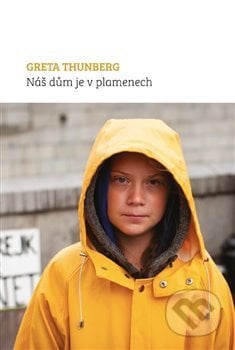
The Penguin History of Modern Spain
Knihu koupíte v
1 e-shopu
od
375 Kč
Pokud se vám po kliknutí na tlačítko "Do obchodu" nezobrazí stránka knihy ve vybraném e-shopu, je třeba vypnout AdBlock ve vašem prohlížeči pro naši stránku.
Návod na vypnutí je například na adrese https://o.seznam.cz/jak-vypnout-adblock/#1.
Krátký popis
‘The best account in a single volume of Spain since 1898, exemplary
for concision and for accuracy in the use of language, as well as
for equanimity and generosity of spirit’ Felipe Fernández-Armesto,
TLSA revelatory new history of Spain, from the late nineteenth
century to the twenty-first'Spain is different,' proclaimed the
Franco regime in the 1940s, keen to attract foreign tourists. For
the most part, the world has agreed. From the end of its 'glorious
empire' in 1898 to the dazzling World Cup victory in 2010, the
prevailing narrative of modern Spain has emphasized the country's
peculiarity.Generations of historians and readers have been
transfixed by its implosion into civil war in the 1930s, seduced by
the valiant struggle of the republicans, horrified by the barbarity
of the dictatorship which followed. Franco's Spain was seen as an
anomaly in the midst of prosperous and permissive post-war Western
Europe. But, as Nigel Townson shows in this richly layered and
exciting new history, beyond the familiar image, there lies a
radically different history of Spain: of a dynamic and progressive
society that fits firmly into the narrative of modern
Europe.Drawing on over forty years of post-Franco scholarship, The
Penguin History of Modern Spain transforms our knowledge of Spain
and its politics, society, economics and culture. It interweaves
cutting-edge Spanish-led research - never before published in
English - and testimonies of peasants, housewives, soldiers,
workers, entrepreneurs, feminists and worker-priests, for an
original and surprising portrait, which allows us, at last, to
discern the country behind the veil of propaganda and romantic
myths which still endure today
Vývoj ceny
Aktuální Ø cena knihy The Penguin History of Modern Spain je 375 Kč
Výběr knih vydavatele
Allen Lane
Zobrazit všechny knihy vydavatele
Allen Lane
Naše tipy
- Právě probíhající akce a slevy na knihy
-
Knihydobrovsky.cz | do 12.12.2025
-
Knihydobrovsky.cz | do 17.12.2025
-
Knihydobrovsky.cz | do 24.12.2025
-
Knihydobrovsky.cz | do 24.12.2025
-
Bookshop.cz | do 31.12.2025
- zobrazit všechny akce












